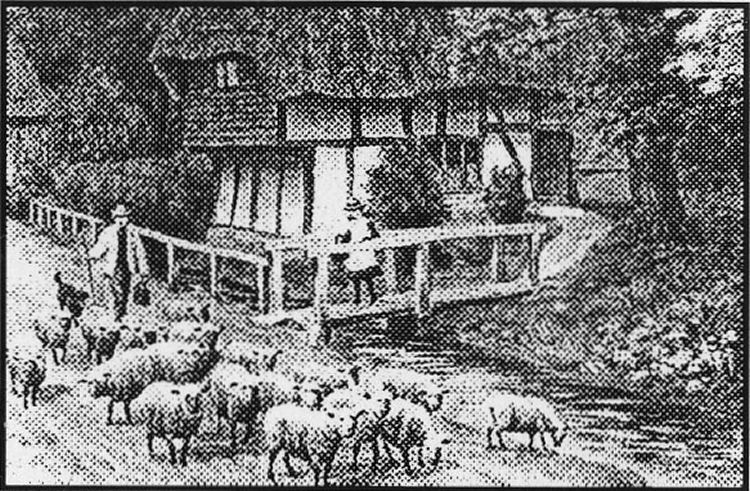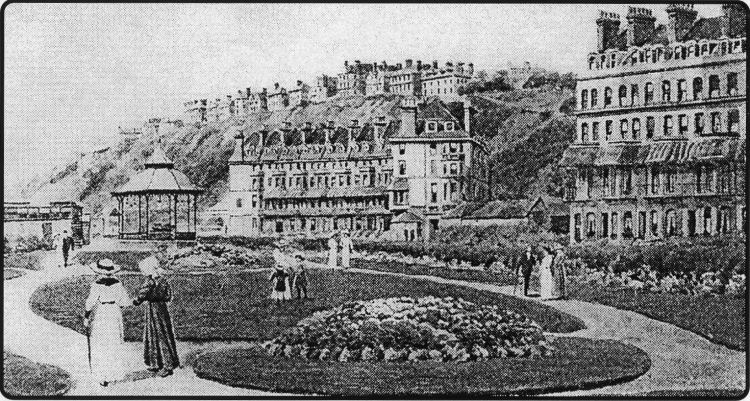
Published 6 June 2002

Flying visit
IT'S A far cry from the sunny surfing beaches of New Zealand to Folkestone
where Mick Champion and his wife Sue (nee Gower) are staying during a
seven-week visit to their folks in Shepway.
But Mick, 67, who had a successful garage business in Rotorua until he
retired a few years ago, has been staying with his sister Jill and his
brother-in-law Don Johnson, whose home in Elham is also shared by their
father, 88-year-old Cyril Champion.
One of Mick's earliest memories is of a Messerschmitt fighter making a
pancake landing just above the chalkpit at Elham, during the Second World
War, after being shot down by an RAF patrol he believes came from Manston.
As a youngster Mick and his friends crawled all over that wreck when the
guards weren't looking and he recalls how someone made off with a machine
gun from the fighter - "just one step ahead of us," he commented!
But the souvenir hunter's triumph was shortlived, he was caught! The
practice was frowned on by the authorities.
A remarkable twist to the story, says Mick, is that some years after he went
to live 'down under,' he met one of the fliers from the patrol that brought
down the plane in New Zealand.
The story of the German fighter's crash-land-ing in the village is told in a
classic book about the Battle of Britain and the war, "Harvest of
Messerschmitts," which is all about the fighters our RAF boys shot down over
Kent - at the great cost of many brave air aces from many nations.
"My mother, Grace Matilda Champion (nee Baker) is among those featured in
the book," Mick told me.
And, still on the subject of war, Mick, a surfing
fan, told me of the remarkable discovery he and Sue made in a small New
Zealand township while trawling through bygones. The shop was only a two
hour drive away from their home, close to a seaside community where they are
having a new home built.
They turned up four priceless relics of the First World War to any collector
in the UK - original postcards of Folkestone all used by a New Zealand
soldier, known only as Will, to write a 'letter' to folks back home, on
September 6,1917.
He had probably not been in England long when he wrote, for he comments: "I
have not got to the war yet. We arrived here (Folkestone) at 5 o'clock this
morning from Salisbury Plain, having left there at 11 last night.
Town under attack
"We fully expected to go to France straight away, but I suppose we will get
there in the morning. "Folkestone is a beautiful pretty place .... We are
billeted in flash houses here similar to like what is on this card (the
Metropole Hotel viewed from Leas.)
“The part I am in consists of a whole square of buildings the Government has
commandeered for the troops; such lovely big houses, and a lot of them. I
hear they are really owned mostly by Germans."
This was written on the back of a postcard of large blocks of houses and
apartments looking out over the old Marine Gardens and the beach.
Will goes on to write about some of the effects of war on Folkestone. This
was after the devastating air raid on Tontine Street area on May 25, 1917.
"We see a lot of wounded and maimed men of Canada and Australia, as well as
English. I also saw the effects of German air raids here....some buildings
knocked about and being repaired.
"It is a great sight seeing so many troops about
MARINE Gardens, Folkestone, says the printed caption of this First World War
postcard sent home to New Zealand by an ANZAC soldier as he was about to
embark for the battlefields of France, in September 1917.
and to see the airships, like Zeppelins, sailing about over the sea
(Channel) looking for submarines, and so many steamers out mine-sweeping."
Will's account spills over on to the reverse of a third postcard depicting
mainly Edwardian ladies in all their finery joining children paddling on the
beach west of the old Victoria Pier.
There is no hint in his message of any concern about the impending draft to
France and the battlefields. Perhaps Will was deliberately playing down this
aspect as he wrote to "Edie," who could have been a sister or girlfriend.
Will goes on to write about the weather and of his pleasure in seeing the
harvest brought in, "although some has been spoiled by the continuous wet
weather." But then follows a note of concern:
"Tonight is so calm and fine, it is considered a night that an air raid may
be expected, as they (enemy war planes) have been so active lately."
Will, who wrote in easily legible handwriting, sent a fourth postcard
showing a shepherd herding
sheep just outside Folkestone, in the tiny, picturesque hamlet of Frogholt,
the backdrop being one of the classic thatched and timbered cottages of Kent
alongside a small stream.
Mick and Sue Champion left Auckland, New Zealand, for the UK on May 5,
flying via Brisbane to Singapore where they spent several days, and took in
a visit to the famous Raffles Club.
One member of the family they won't be seeing during their trip is Sue's
father George Gower, who is 95. He has already joined them out in New
Zealand, where he has been living for some time.
George was a professional golfer who once worked in Folkestone. Sue is keen
on family history and, during their seven-week holiday to visit family, such
as cousin Jean Jenkins (nee Marshall) in Folkestone, will do a spot of
research.
And there are plenty of family names to look up in various records, such as
the Bakers. Sue's mother, Grace Matilda Gower, from a family of one son and
six daughters, was a Baker.

 |
Council asks for more time to start tramway
•4 QAATHE Town Council was seeking an _LZ7\S^ extension of time in which
to use their powers to start building a public tramway system, those
powers due to run out in August. The extension sought was until August
1904. In support of their application they said construction could not
begin until the planned widening of Cheriton Road had been done. The
Herald commented there was a growing feeling against the great
expenditure required to open a tramway because the intention was to put
the power supply within a channel cut into the road, rather than have
overhead power lines as in Dover and most other places operating
electric tram cars. It was thought Cheriton Council was so fed up with
Folkestone's lack of motivation it might oppose the extension of time
being granted. to force the Town Council to start work on widening.
Moves were being made to persuade the S.E. & C.Railway to re-open a
temporary station for visitors in the Warren, from mid-May to
mid-October. The railway was said to be willing, providing Board of
Trade sanction was given, and land owner Lord Radnor was believe to
approve the idea. But a cafe was needed, said the editor.
|
Crisis call for 1,000 soccer supporters, to save top club
A Q/)7 FOLKESTONE FC was £900 in debt and the I Mayor, Reginald Wood,
launched a public appeal for subscriptions to bale out the unhappy club.
The appeal came at a public meeting in the Town Hall when those present
were unanimous Southern League football should continue in the town. It
was said heavy debt hampered the club in attracting sufficient talent
for a league team. The mayor said football was first class advertising
for the town. They had a top class ground and one of the main targets
was to recruit a thousand club supporters, each paying five shillings,
to put the club on a sound basis. Supporting the mayor. Cllr W.H.
Moncrieff said his colleague had made county cricket to grow where
previously cabbages grew. His dogged determination achieved great things
for the town and, he was sure, would continue to do so. If they could
sign up 1,000 supporters Folkestone football was “made" for the next
generation, but at the moment the club owed local tradesmen £500. a debt
that must be cleared. He was ashamed of it. There was unusual interest
in the fact the Rector of Saltwood played shove-ha’penny, or ‘‘poor
man's billiards" at the village pub. The Vicar of Hythe even mentioned
it when supporting an application in a local court for a new cinema!
|
Fishermen land nice catch of salmon caught in Bay
<4 Q CO PRIME Minister and Lord Warden of JL«/3^the Cinque Ports.
Winston Churchill sent a telegram to Alderman Mrs L.E. Farmer
congratulating on her appointment as the first lady Mayor of Hythe and
the first lady Speaker of the Cinque Ports. A highlight of the
entertainment scene in 1952 was the production of "Pirates of Penzance"
at the old Pleasure Gardens Theatre by the Folkestone-Hythe Operatic
Society. Janice Heybourne. 14. of Saltwood was chosen Hythe's May Queen
and was crowned on Empire Day. in May. at the start of a country dancing
display at Church House, in aid of a community hall fund. The Herald's
midweek paper, the Gazette, reported an unusual catch in the Bay by the
Folkestone fishing boat Britannia (skipper E. Taylor) which landed a
nice salmon of 6 lb lOoz. It was sold at auction to <i local fishmonger,
fetching 8 shillings (40p) a pound. Flying home to the UK on a special
flight known as "Diaper 2" was war bride Phyllis Adams, who. in 1945.
married a major in the USAAF based at Bovingdon. She met him while
serving in the WAAF at Stanmore. in the Second World War. and was flying
home from the USA to see her parents in S.iltwood for the first time
since her marriage, bringing with her Wainwright. her six-year-old son.
|
Rap for anglers over fishing with lay-lines on the sands
«| LAY-LINES with baited hooks suspended by
JL«7 f I anglers between stakes in the sands of bathing beaches to catch
fish between tides, created a stir. It was an age-long practice, but a
few people were making stake-outs in sensitive areas where bathers could
be injured by the hooks. Shcpway council discussed imposing a by-law to
outlaw the practice over eight miles of beaches. A Council estate at
Hawkinge was said to be '‘deteriorating” because of the type of tenant
being sent to live there, or. as a parish councillor put it, “dumped
there.” Another councillor pointed out people on housing lists seemed to
be treated as though they were mere numbers. No thought seemed to be
given to whether people had ever lived in a rural community before. Some
were so completely divorced from their normal environment they could not
settle, he pointed out. But an official's reaction was that allocations
had to be based only on need. Eight hundred years of male supremacy
ended 25 years ago amid cheers as New Romney appointed Mrs Elizabeth
Wells its first woman mayor. All her colleagues thought it a
particularly appropriate appointment in Jubilee Year. Hundreds of school
children were expected to face disappointment on the day of the Jubilee
celebrations because there had been such a demand the potteries could
not keep pace with orders and the supply for Folkestone was 800 short. |
|



